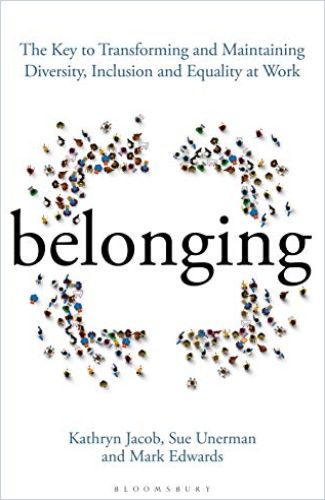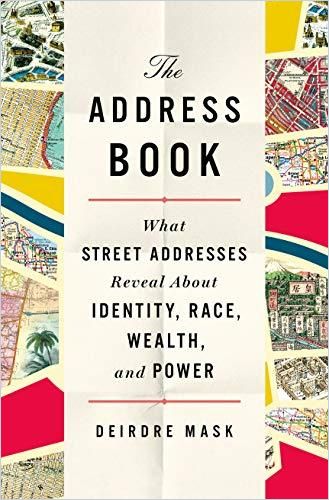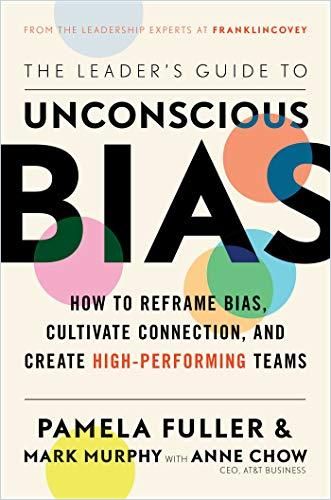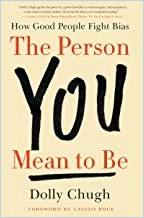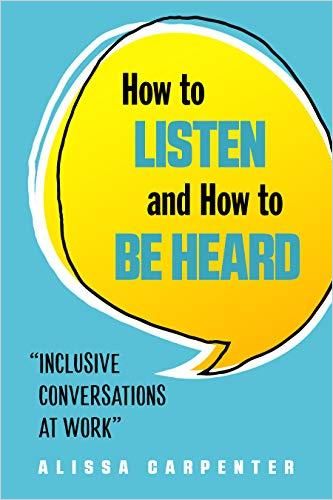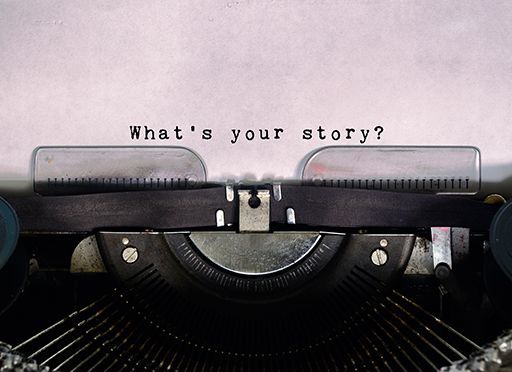Chimamanda Ngozi Adichie
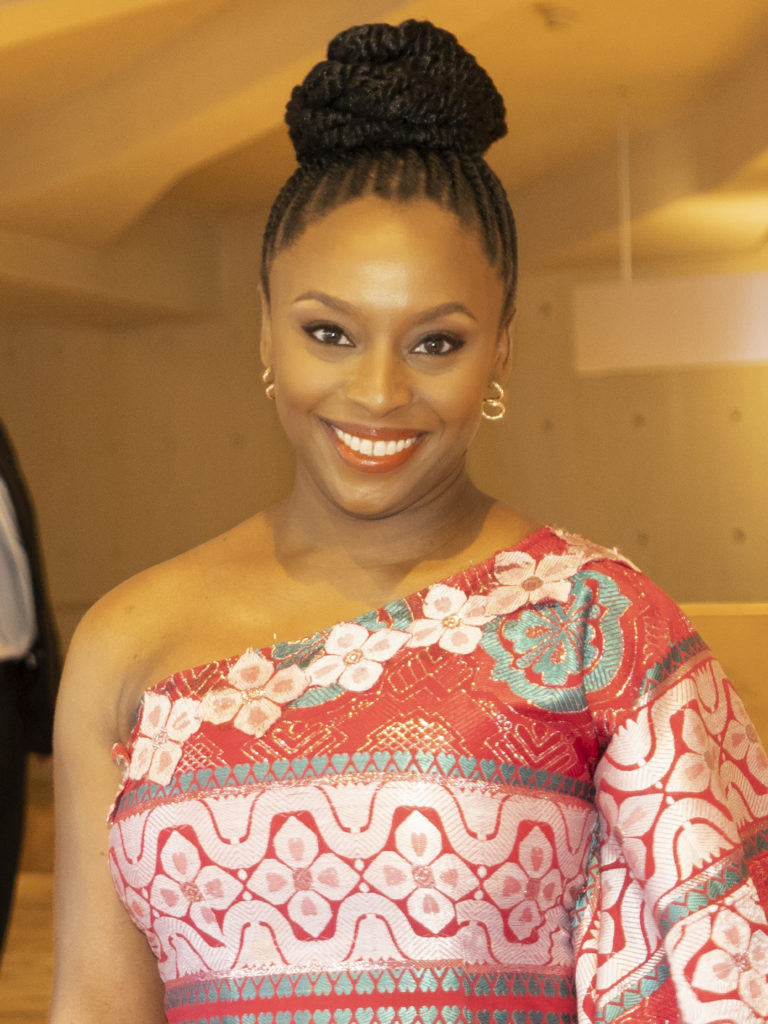
Chimamanda Ngozi Adichie is a Nigerian novelist, essayist and speaker. She has written three award-winning novels including Americanah, which won the US National Book Critics Circle Award and was named by The New York Times as a top 10 book for 2013, a short story collection and two nonfiction titles.
She was a MacArthur Foundation Fellow in 2008. Adichie’s TED Talk about feminism sparked a global conversation. Find out more at Chimamanda.com.
Photo: Thomas Rabsch/laif
1. Adichie’s Key Findings and Messages
- Only knowing one story limits your perspective and world.
- The power of storytelling lies in its ability to inform, uplift and connect people.
- Sexism is the result of an often unquestioned story about women’s place in society.
- Feminists believe different things, but they all believe women should be treated equally and with dignity.
2. Why Do They Matter?
Adichie published her first novel, Purple Hibiscus, in 2003, followed in 2006 by Half of a Yellow Sun, which was adapted into a film, and Americanah in 2013. She speaks about the stories people tell about one another, themselves and entire cultures, and the power stories have to destroy or to instead heal and create community. Her 2012 TED Talk formed the basis for her acclaimed essay, We Should All Be Feminists which is now a cultural touchstone globally. Pop superstar Beyonce sampled Adichie’s words in her 2013 song “***Flawless.” Adichie frequently speaks about feminist issues. Time magazine included her in its 100 Most Influential People list in 2015, and she made Fortune magazine’s 2017’s list of the World’s 50 Greatest Leaders. Adichie is a much sought-after speaker and cultural thought leader, participating in public conversations about art, storytelling, empathy and emotions, feminism and gender expectations, and most recently about how different cultures deal with death. She recently published Notes on Grief, based on an essay she first penned for New Yorker magazine following the death of her father.
3. To Understand Adichie’s Work, Start Here
Her first TED Talk in 2009, “The Danger of a Single Story,” brought attention to Adichie as a thought leader, and not solely a novelist:
Highlights:
- People often have distorted ideas about other cultures because of the single story they’ve heard about a country’s people.
- Stories have power when they become the defining story of another. They can rob people and cultures of dignity.
- Stories can also uplift and humanize others.
That is how to create a single story, show a people as one thing, as only one thing, over and over again, and that is what they become.
Chimamanda Ngozi Adichie
4. Practical and Quick Insight: Feminism
Adichie is known as a “feminist icon” because of her 2012 TED Talk “We Should All Be Feminists,” where she argues gender roles cause as much harm to boys and men as they do to girls and women:
Highlights:
- Men and women should reclaim the stigmatized label of “feminist” to reject oppressive gender roles and achieve greater authenticity, freedom and happiness.
- Society pressures boys to be invulnerable, fearless breadwinners, resulting in fragile male egos.
- Girls minimize their ambition and success to protect the weakened male ego. They build a persona around the goal of marriage and silence their inner voice and desires.
- Yet humans can remake themselves and their culture. The process begins with child-rearing – for example, by nurturing boys’ humanity and ability to be vulnerable.
- Instead of perceiving a child’s gender, see an individual with interests and aptitudes. Instruct all children in basic skills, like cooking, and stop establishing masculinity as the norm or apologizing for femininity.
Learn more about the topic in our reading list:
Gender as it functions today is a grave injustice. We should all be angry. Anger has a long history of bringing about positive change; but…I’m also hopeful, because I believe deeply in the ability of human beings to make and remake themselves for the better.
Chimamanda Ngozi Adichie
5. Fostering Open and Honest Dialogue
Adichie participates in a wide-ranging 2021 panel discussion with former German Chancellor Angela Merkel focused on threats to democracy around the world. Answering a question following a controversial essay she published accusing a critic of sanctimonious “ideological orthodoxy,” Adichie here discusses the uses and misuses of social media and “cancel culture.”
- Democracy depends upon an educated and informed electorate.
- Bad actors use social media to deliberately manipulate people and spread misinformation.
- Don’t be so quick to define others with a “single story.”
- Be more open and curious for genuine dialogue. Begin by assuming good faith.
In her address delivered at the 2021 Reykjavík International Literature Festival, Adichie talks about the pursuit of joy.
- Every human is in pursuit of joy.
- Laws and policies present obstacles to women pursuing joy, but it’s more crucial to change the mind-set that keeps those obstacles in place.
- Storytelling is a way of exploring and changing mind-sets, and thereby culture.
- There’s a difference between facts and truths.
- People should strive to be more comfortable with discomfort while at the same time emphasizing intent and context rather than precise language for more productive and forgiving conversations.
I say to young people: Do not get your news from TikTok. Read an actual newspaper.
Chimamanda Ngozi Adichie
6. Additional Resources by Topic
- On the absurdities of political correctness – In her address to Harvard‘s class of 2018 she notes, “Today the political discourse in America includes questions that are straight from the land of the absurd, questions such as should we call a lie a lie? When is a lie a lie?”
- Identity is both an interior identification and assigned from without – Adichie discusses the intersection of her identities as a black woman and writer in this interview for The Economist‘s Open Future Festival.
- On telling multiple stories – In a Guardian Q&A Adichie says, “I worry that there is sometimes a bit too much moralising around the idea of multiple stories. We shouldn’t read or publish a diverse range of stories and writers in order to be ‘good,’ we should do so because it is sensible and should really have been the norm a long time ago.”
- What does Adichie wish she’d known at 20? – Net-A-Porter asked, and she answered: “I cannot believe how much time I wasted believing that I was not enough just as I was.” Now she most values being true to herself.
- A conversation on Notes On Grief – In this conversation with WBEZ reporter Natalie Moore for the Chicago Humanities Festival, Adichie speaks about the ways different cultures deal with death and mourning:
- Authors who have similar ideas and represent the same values:
We are multidimensional people and societies. We should be more open and curious about others and not so quick to define others with a single story. This is how to build a genuine dialogue.
Chimamanda Ngozi Adichie
7. Deep Dive: Improve Your Conversations
Find out more about Adichie’s main topic in our related Journal articles:
About Our Thought Leader Profiles
Biographies can be found on Wikipedia. What you find here are instant practical insights into the thinking of important contemporaries. With the necessary references to the summaries of their works at getAbstract, of course.
